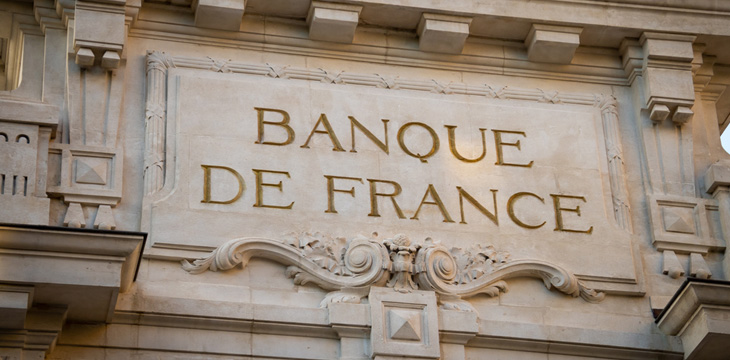|
Getting your Trinity Audio player ready...
|
The Bank of France is among the top central banks globally that’s studying the feasibility of a central bank digital currency (CBDC) as one of the big players in the regional effort to develop a digital euro. However, according to one of its top officials, a CBDC is not an urgent concern for the bank. The official also expressed concerns regarding the digital currency’s role in the economy, including its effect on commercial banks and monetary policies.
Denis Beau, the first deputy governor for the Bank of France, delivered his speech in Paris at a conference dedicated to addressing the emerging challenges of financial regulation. In his speech, which was recently published by the Bank for International Settlements (BIS), the regulator also talked about DeFi and the need for the Bank of France to regulate the emerging sector.
For Beau, one of the considerations that the Bank of France must factor in is that the stability of the French payments system does not solely rely on the bank’s ability to provide a CBDC. He acknowledged that the entrance of big tech and the rise of fintech, as well as digital currencies like Bitcoin, can improve the payment system and make it easier to access, cheaper and more convenient.
“However, these innovations also carry risks for the smooth functioning of our payment system,” the official told the audience.
Beau is not a big fan of digital currencies, in particular. He views them as a threat to central bank money. To him, the rise of these currencies as a payment method, “whose link with central bank money is complex and fragile, to say the least, if not non-existent for some, are likely to call into question the integrating and anchoring role that central bank money plays in our payment system.”
Digital currencies pose three major threats, Beau said. The first is the risk of fragmentation of the payments system. They could also lead to a risk of monopolistic situations by global digital giants, which could dominate the market and push out smaller rivals. And then there is the security risk as digital currencies suffer from “unstable value, uncertain convertibility into central bank money, and [are] without a responsible issuer and credible lender of last resort in the event of a destabilizing shock,” according to the central bank official.
CBDCs could solve many of the challenges that digital currencies pose, Beau said. However, even with CBDCs, he has concerns.
One of these is the effect that CBDCs could have on commercial banks. The biggest risk would be a drastic reduction in bank deposits. This could limit their profitability, and ultimately, their ability to finance the real economy.
Beau believes the solution lies in bringing them onboard to participate in the CBDC development to avoid the risks to banks. “Their input is needed, for example, to set limits and/or remuneration disincentives for CBDC holdings,” he said.
And while the Bank of France continues to work on its national and regional CBDC projects, Beau believes that it’s not the most urgent thing for the bank.
“We regard regulation as a priority, because the smooth functioning of our payment system depends, first and foremost, on a regulatory framework that is clear, fair and balanced,” he told the audience.
Therefore, the Bank of France has welcomed the Markets in Crypto-Assets (MiCA) regulation and the Digital Operational Resilience Act (DORA), he said. As European Commission’s Pēteris Zilgalvis told Jimmy Nguyen on Blockchain Policy Matters earlier this year, MiCA was set up to deal specifically with non-securities tokens, including Bitcoin and stablecoins.
To learn more about central bank digital currencies and some of the design decisions that need to be considered when creating and launching it, read nChain’s CBDC playbook.
Watch: CoinGeek New York panel, Government & Public Sector Applications on Blockchain

 02-25-2026
02-25-2026 




